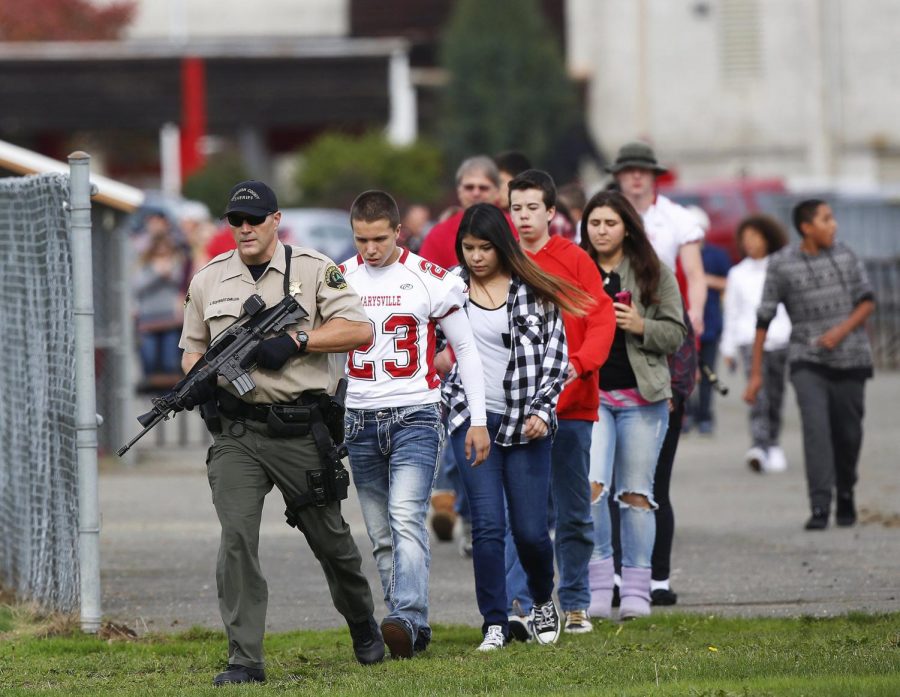The San Diego Community College District Police Department along with other programs have safety procedures and advice for students and faculty in the case of an active shooter or lockdown situation.
With recent events of school shootings still on a rise, the District Police Department has procedures, tips and classes to make students feel more safe on campus and Sergeant Jeffrey Hughes informed that the department’s responses change over time according to current events. “As both an educator and a police officer,” Sgt. Hughes said, “I know students learn best when they feel safe.”
Students should first take action in the event of an active shooter by entering the nearest classroom available preferably with little to no windows. The next step of evaluation involves the three options of run, fight or hide. The first option if possible should be to run but that is not always possible. Next, student’s have to decide whether they can hide themselves and others well or decide to fight the physical threat for their own safety.
“There’s an overwhelming number of school shooters who have given up when they meet the slightest bit of resistance,” Sgt. Hughes stated, “they’re looking for easy victims.”
The District Police Department along with Emergency Management Resource Team created ALICE which stands for the training concept of alert, lockdown, inform, counter and evacuate. The training concept was developed to educate and physically prepare students and staff with an important set of skills to use before first responders arrive on the scene. DeAnn Griffin is the director of the training course and they held each spring and fall semester with certified instructors and with a capacity of 40 participants. There is more information with contacts available on police.sdccd.edu.
Mesa College created a campus layout specifically designed for the purpose of creating an environment to be as safe as possible with Crime Prevention Through Environmental Design. For example, some parts of campus are seen to have no bushes around where others might have a few. This particular strategy of where bushes can be on campus lowers the number of opportunity there is for people to hide in the bushes stated by Sgt. Hughes.
In reference to the Parkland, Florida high school shooting where 17 students died, Sgt. Hughes claimed that, “one of its many failings was that students reported the shooter and officers failed to follow up on the information.” He hopes his officers would never do that because that’s not how they’re trained, so they take situations like Parkland and evaluate how they can prevent that from happening on their own turf.
Cody Hazboun, Mesa student, feels confident in keeping himself safe during an active shooter situation but worries if his peers around him could do the same. “I always feel safe on campus but as for making it more safe, I don’t think arming teachers is a good idea because that’s not their job,” Hazboun said, “maybe we could have more cops around campus.”
Every semester the District Police Department hosts “Coffee with a Cop” on campus where students are encouraged to approach the officers at a booth and have a conversation or just get familiar with them. The idea is to break down the stigma that people should be afraid of police officers and give students the chance to ask or tell them whatever they would like.
“I want my officers showing their face and walking around campus rather than sitting in their car and making those contacts so that when people do see something, they feel comfortable approaching us,” Sgt. Hughes stated.
Procedures have always been set for a variety of emergency situations at Mesa College, but departments continue to come together each year to bounce off new ideas and make sure they are up to date with making campus as safe as possible for everyone. Sgt. Hughes favorite advice to give students is always “if you see something, say something.”


